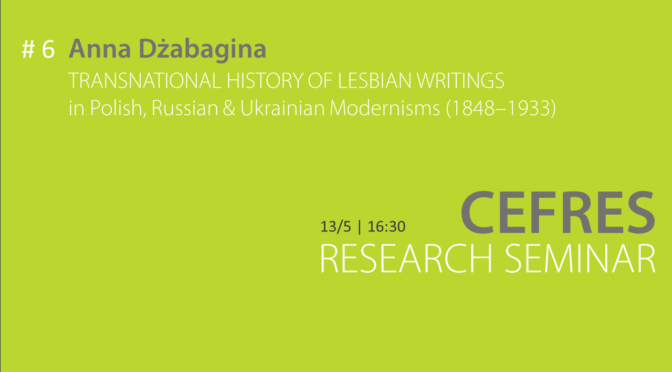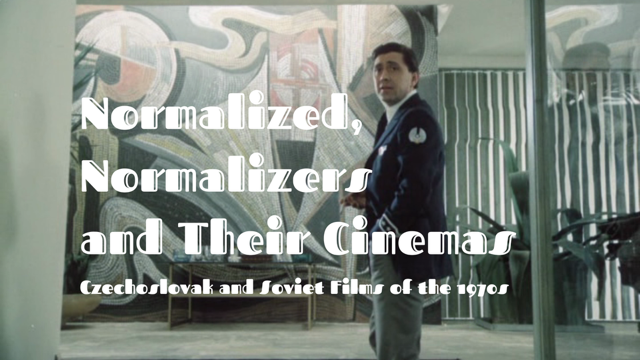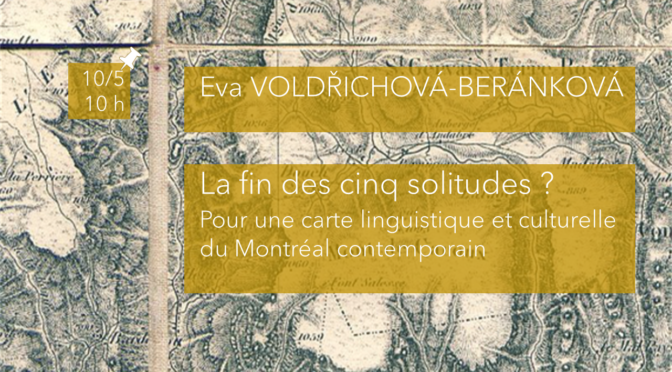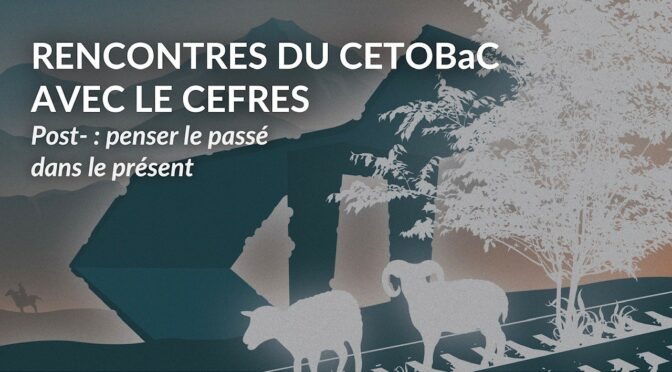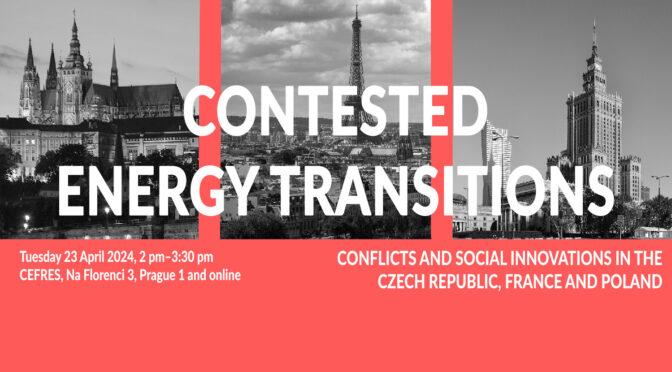Racializing Romani People in the 19th Century
A conference, jointly organized by the Prague Forum for Romani Histories at the Institute of Contemporary History, the Czech Academy of Sciences, in collaboration with Gonzaga University, the Postgraduate School ZRC SAZU, and the Institute of Ethnology, Czech Academy of Sciences, and supported by Strategy AV21 (Research Programme: Identities in the World of Wars and Crises), Lumina Queruntur award (LQ300582201), and Gonzaga University.
Date: 20-21 May, 2024 at 12:45pm
Location: Villa Lana, V Sadech 1/1, 160 00 Praha 6-Bubeneč
Conclusive public roundtable discussion (21/5/2024): CEFRES, Na Florenci 3, Prague 1
Language: English
CEFRES welcomes in its premices the last public roundtable discussion, 21 May 17h00-18h30 – Round-table discussion
- Chair : Vita Zalar
- Speakers: Margareta Matache, Sunnie R. Chang
Participants of the conference
- Rafael Buhigas JIMÉNEZ (member of the History and Commemoration department of the European Roma Institute for Arts and Culture, ERIAC)
- Maria CHIOREAN (PhD candidate at Lucian Blaga University of Sibiu)
- Martin FOTTA (head of the Department of Mobility and Migration at the Institute of Ethnology, Czech Academy of Sciences – EÚ AV ČR)
Carolina García SANZ (associate professor in the Department of Contemporary History at the University of Seville) - Margareta (Magda) MATACHE (lecturer at the Department of Social and Behavioral Sciences, Harvard T.H. Chan School of Public Health)
- Dezso MATE (Romani Rose Fellow at the Research Centre on Antigypsyism at the Heidelberg University’s Department of History)
- Verena MEIER (PhD candidate at the Research Centre on Antigypsyism at the Heidelberg University’s Department of History)
- Sunnie RUCKER-CHANG (associate professor at the Ohio State University)
- Laura Soréna TITTEL (postdoctoral researcher at Justus Liebig University Giessen)
- Tom TYSON (PhD on the history of Gypsies in early modern Scotland at Cambridge University)
- Dalen WAKELEY-SMITH (assistant professor of history at Washington University in Saint Louis)
- Egemen YILGÜR (professor of anthropology at Yeditepe University)
Complete Program
Monday, May 20th
12:45 – Welcome
Ann Ostendorf and Vita Zalar
13:00-15:00 – Keynote session
- Chair: Ann Ostendorf
- Margareta Matache: The Racialization of Romani People Across Time and Geographies: Patterns and Mechanisms.
- Sunnie R. Chang: Relational Perspectives on the Origins and Uses of ‘Blackness’ in Roma and African American Communities
15:00-15:30 – Coffee break
15:30-17:30 – Panel I: Intellectualizing Race
- Chair: Tina Magazzini
- Dezso Mate: History of the Gypsy Lore Society
- Martin Fotta: Race, Nation, and Lusophone Gypsylorism
- Tom Tyson: Antiquarians, Missionaries, and the ‘Romantic Gypsies’ of Scotland
Tuesday, May 21
10:00-12:30 – Panel II: Racializing Nations
- Chair: Martin Fotta
- Rafael Buhigas Jiménez: ‘Gitanos’ from Working-Class Neighbourhoods in the (Proto)Gossip Magazines: Racialization and Criminalization in Madrid (1850- 1900)
- Dalen Wakeley-Smith: ‘A Very Undesirable Class of Immigrants’: Immigration Officials, Race, and ‘Gypsies’ in the Gilded Age and Progressive Era Egemen Yılgür: Ethno-racialization of the ‘Gypsy’ in the Modern Ottoman Censuses
- Carolina García Sanz: Constructing the ‘Racial Enemy’ against the Spanish Colonial Crisis: The Civil Guard and the ‘Gypsies’
12:30-13:00 – Lunch break
13:00-15:00 – Panel III: Contradictions and Critiques of Racialization
- Chair: Renata Berkyová
- Verena Meier: Antigypsy Special Legislation in Germany: Labels for State Repression and the Ambivalences of Definition
- Laura Soréna Tittel: Marx’s Critique of Vagabondage and the Policing of Roma in the Nineteenth Century
- Maria Chiorean: Racialization in Abolitionist Fiction: Uncle Tom’s Cabin and Măriuca’s Cabin, a Comparative Case Study
17:00-18:30 – Roundtable discussion hosted by the French Research Center in Humanities and Social Sciences (CEFRES), Na Florenci 3, Prague. The event is open to the general public. No prior registration needed.
- Chair: Vita Zalar
- Speakers: Margareta Matache, Sunnie R. Chang
Abstract
The scholarly study of race, racism, racialization, and racial capitalism on a global scale has significantly reframed our understanding of the nineteenth century. It has been established that ideas about race influenced the thoughts and experiences of all people who lived in the nineteenth century. Racial thinking permeated law, politics, science, and diplomacy. It supported colonizing projects, caused removal from traditional homelands, diminished access to resources, limited citizenship rights, criminalized individuals, and dislocated countless people around the world.
This two-day conference brings the scholarship on nineteenth-century racecraft into conversation with Romani history. The organizers invite contributors to consider the impact of racialization on Romani communities in the nineteenth century.
The intimate two-day conference will be centered around panels consisting of 20-minute presentations with extensive discussion. Scholars from all disciplines were encouraged to apply. We particularly welcomed applications from Romani scholars and early-career scholars.
The conference is an in-person event only. Interested attendees should contact Marek Jandák (jandak@usd.cas.cz) to register.
For further details regarding the discussion content, please visit the Program Forum for Romani Histories website.


